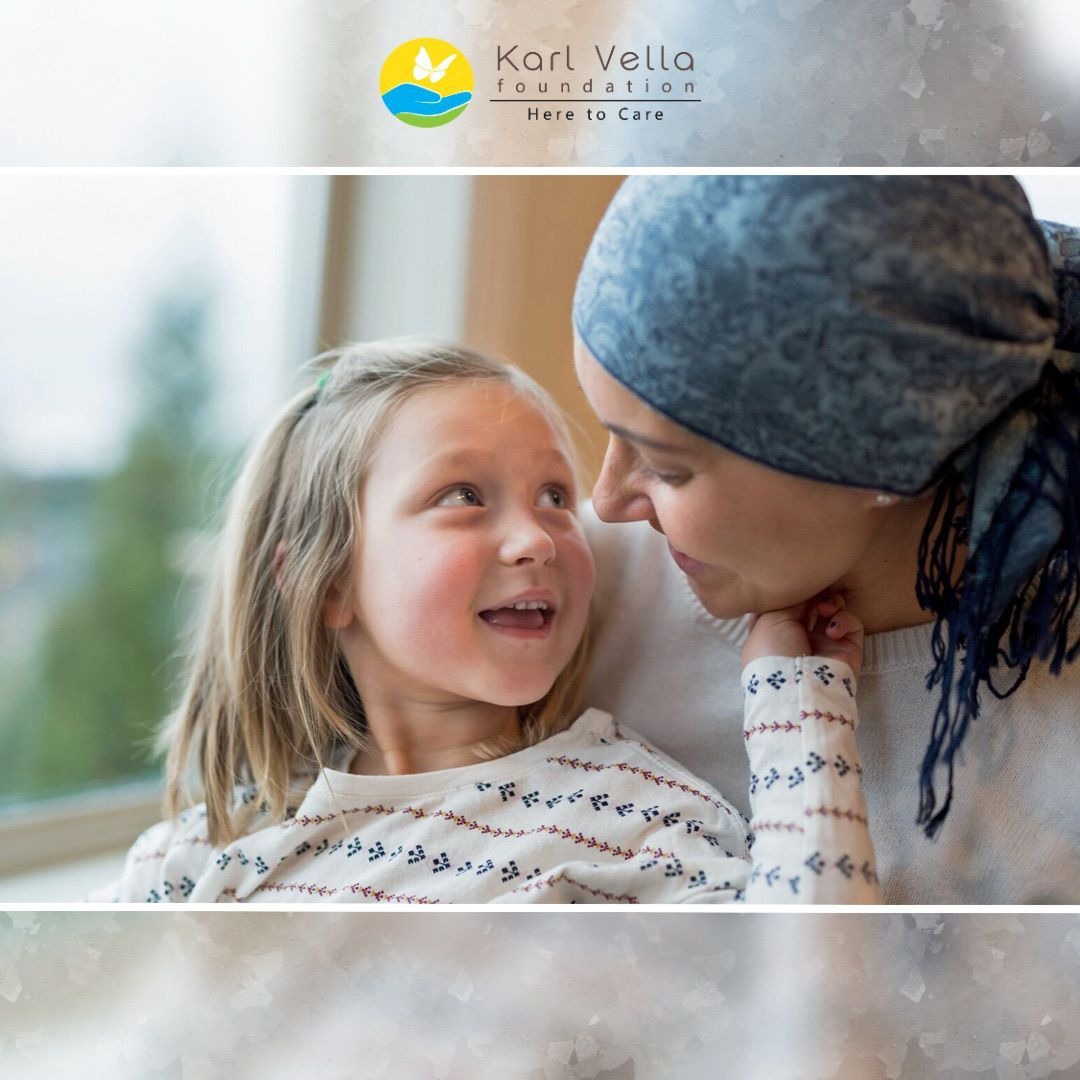Mother's Hair Loss
Mother's Hair Loss
Children tend to have different reactions to their mother’s hair loss. The most noticeable hair loss tends to be a person’s scalp, and face. Hair loss caused by chemotherapy is a temporary side-effect of the medication, and hair does grow back within a few weeks/months after treatment is completed (Mayo Clinic, 2020).
Children’s initial reaction to the hair loss might involve shock, as the child has never seen their mother without hair before. However, as time passes, children tend to get used to their mother looking this way. Some children see the chemo as positive, in that it is helping to cure their mother, and this way of thinking, helps them accept hair loss better (Forest, Plumb, Ziebland & Stein, 2006).
A factor in how children might react to their mother’s hair loss, depends on the communication between the mother and child. If the mother is able to be open about her feelings, and shows her child that she accepts the way she looks, then the child tends to accept the hair loss better. Having this open communication helps children cope with the situation in a more effective way (American Cancer Society, 2015). However, the absence of communication or lack of transparency in this regard, can result in children feeling shocked, and confused.
When talking to children about hair loss it is suggested to give them a simple and clear explanation of what is going on. It might be beneficial to explain that the chemotherapy is a medication used to help manage their illness, but that a side-effect of this is hair loss. It is good to help children make the distinction that the hair loss is a result of the treatment, and not the illness itself. It is suggested to use age-appropriate language when explaining this to children. It is also good to keep in mind that some children might wish to hear more information, and others might not. So, allowing children the space to decide how much more information they want is an important aspect of having open communication. If children do ask questions, it is advisable to answer as accurately as possible, always keeping in mind the children’s age. However, if there is a question which the parent is unable to answer, it is okay to say ‘I do not know’ or ‘I will find out and let you know’ (Cancercare, 2021).
There have been many stories shared by mothers who experienced hair loss due to treatment. Some expressed that going through this experience with their children helped, such as by allowing the children to be present during the shaving of the hair, with some going as far as letting the children themselves give her a final haircut (Vakola, n.d.).
Having negative or confusing emotions to this change is normal, but it is important that the child and mother are still able to cope with this, and find a way to accept and adjust to their situation. In situations surrounding illness and loss, it is important that both the mother and child feel supported. Such support could be through communicating with other family members, and friends. Psychological support is also a strong support system, as the child and mother can open up to professionals who are able to guide them through this journey.
References
Cancercare. (2021). Helping Your Loved One Or Child Cope With Hair Loss. Fact Sheet.
Forest, G., Plumb, C., Ziebland, S., & Stein, A. (2006). Breast cancer in the family— Children’s perceptions of their mother’s cancer and its initial treatment: Qualitative study. British Medical Journal, 332(7548), 998-1003.
Mayo Clinic Staff. (2020). Chemotherapy and hair loss: What to expect during treatment.
Vakola, N. (n.d.) Chemo haircut stories: The one about shaving my mom’s head.

Comments are closed